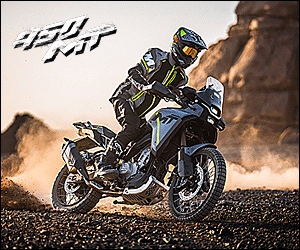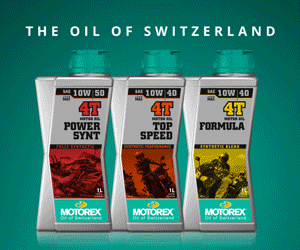2019 Yamaha YZF-R1 Review
YZF-R1 Motorcycle Test by Vicko
Given that the updated 2020 R1 has just been announced (link), Wayne thought it might be an opportune time to have a quick look at the current model before its relegated to the second hand only category. Take it away Wayne…
It only occurred to me as I picked up the keys that I’d never actually had the chance to throw a leg over an R1 before. I have covered well over 100,000 kilometres on my fireblades, both on road and track, and have spent time on all of the other Japanese manufacturers wares, along with most of the European options. But before Trev sorted this YZF-R1 for me I had never before had the chance to wring the neck of an R1.
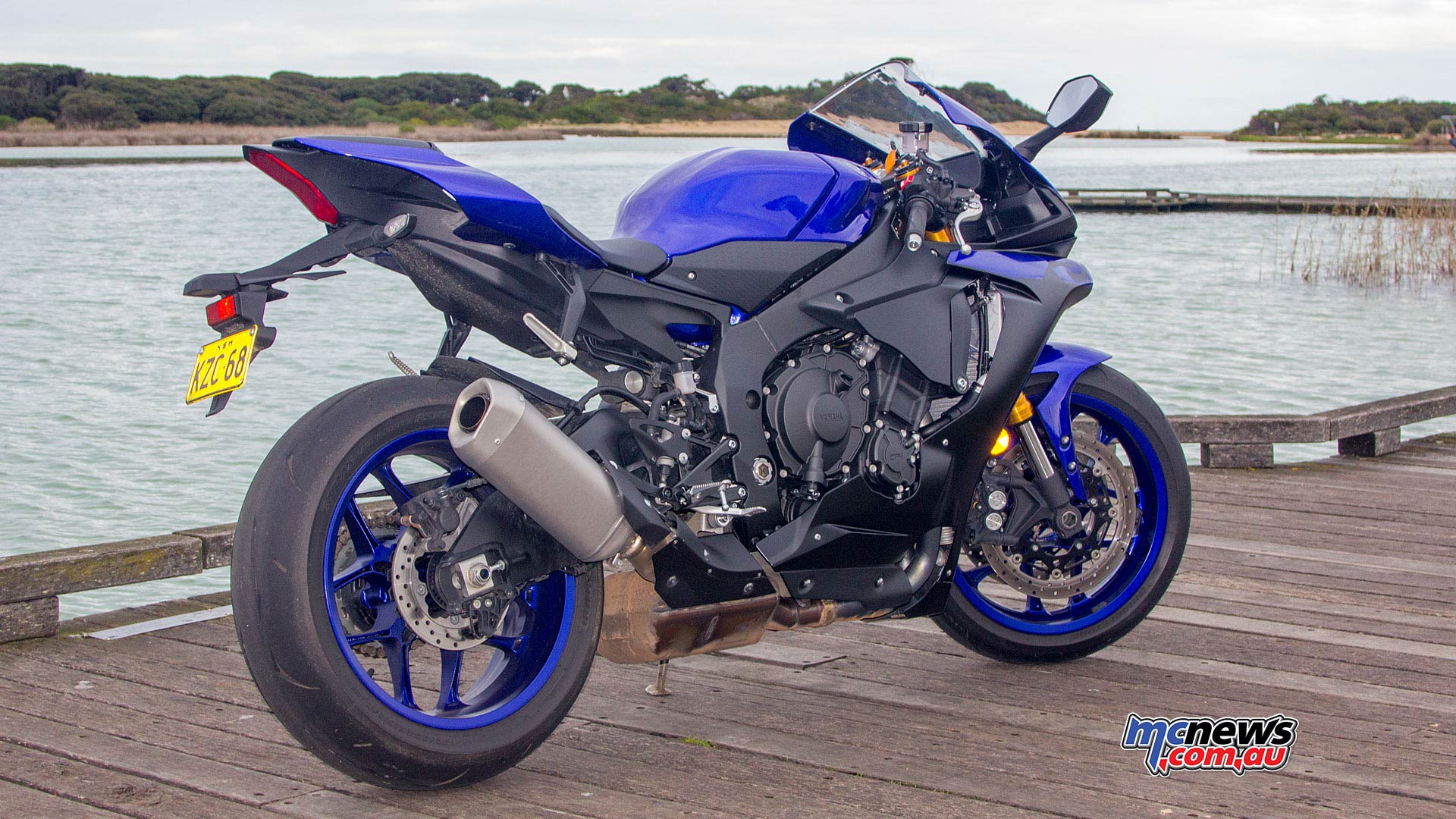
Not that I hadn’t wanted to mind you. The cross-plane crank engine had me at ‘hello’, and gets me all wobbly knee’d and excited in the nether regions. Truth is that I’ve been lusting after one since the first ’09 incarnation for the exhaust note alone, but as my own circumstances had moved me away from full bore sports bike ownership, I’d resisted the temptation to ride one… Probably a good thing for my wallet as it turns out.
Initial impressions were, as expected – it’s quite compact, the riding position is suitably extreme, the suspension is stiffer than a Pfizer intern on date night and… holy cat snot this thing sure has some poke. It used to be a nonsense marketing phrase but modern sports bike really are race bikes with lights these days.
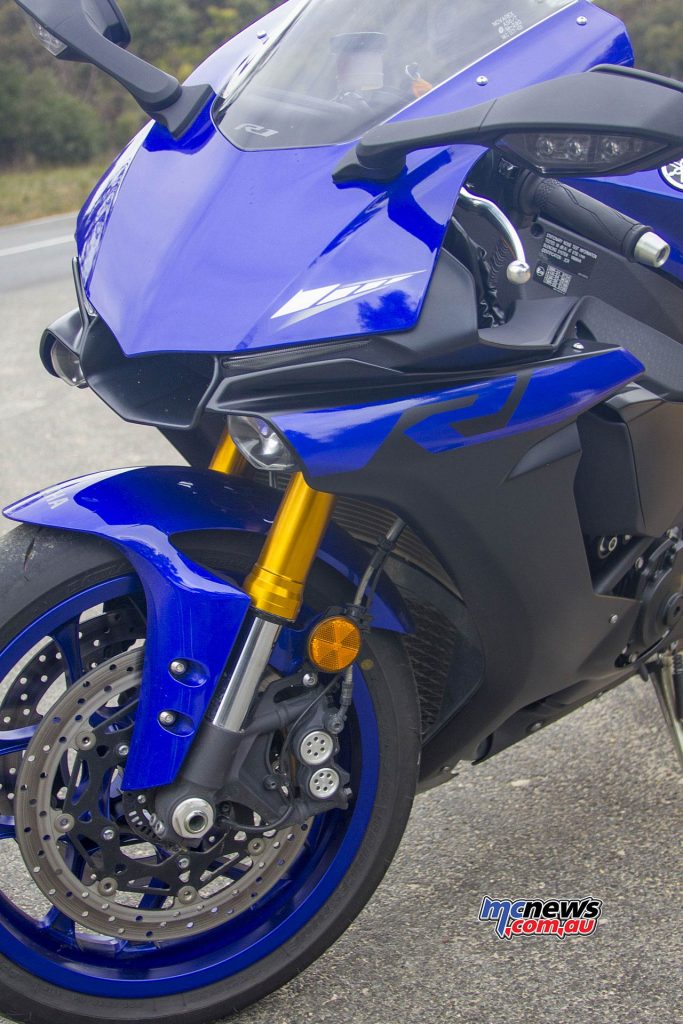
As soon as I got it home I couldn’t help but start raving about the engine. My wife and kids heard about it. My mates heard about it. The coffee guy heard about it. My mates heard about it some more. It’s other-worldly. Smooth and impeccably fueled even off idle, the throttle feel is just superb. It’s low rev big-bang-burble, transforms into a gutteral mid-range growl with a healthy dose of angry air-box thrown in and then a top end howl. It’s a banshee.
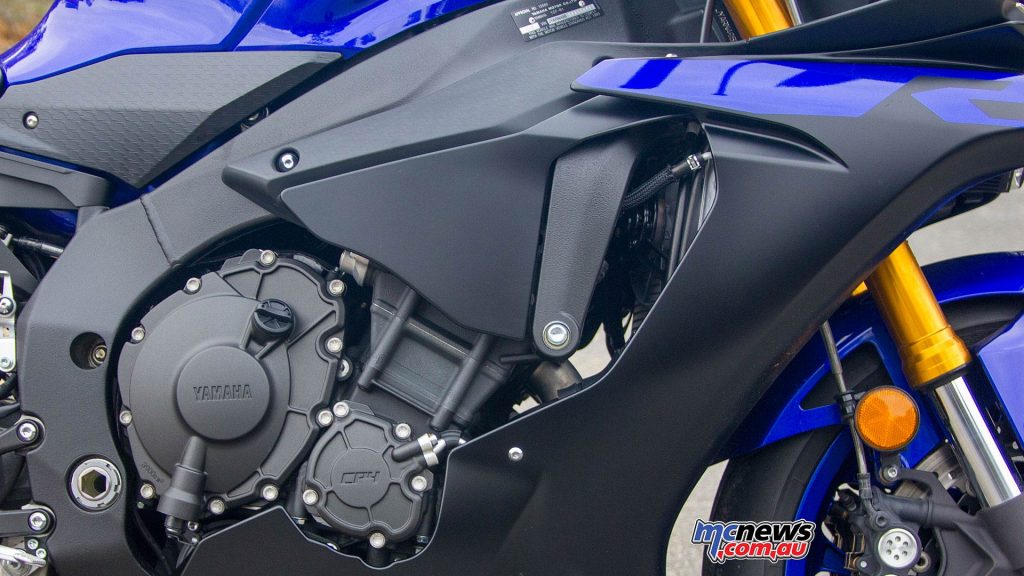
And it absolutely hammers. Jesus does it lay down some hump. From second gear on, as the electronics start to loosen the reins a little, its after-burner city. 200 big, energetic thoroughbreds. Big horses. And you feel every one of them. It’s mad. It’s ridiculous. It’s unnecessary. It’s addictive and I’m more than a bit smitten. Sounds proper horn too, even though the bike I rode was running the standard muffler it was epic! With a slip-on they frighten the four horsemen.
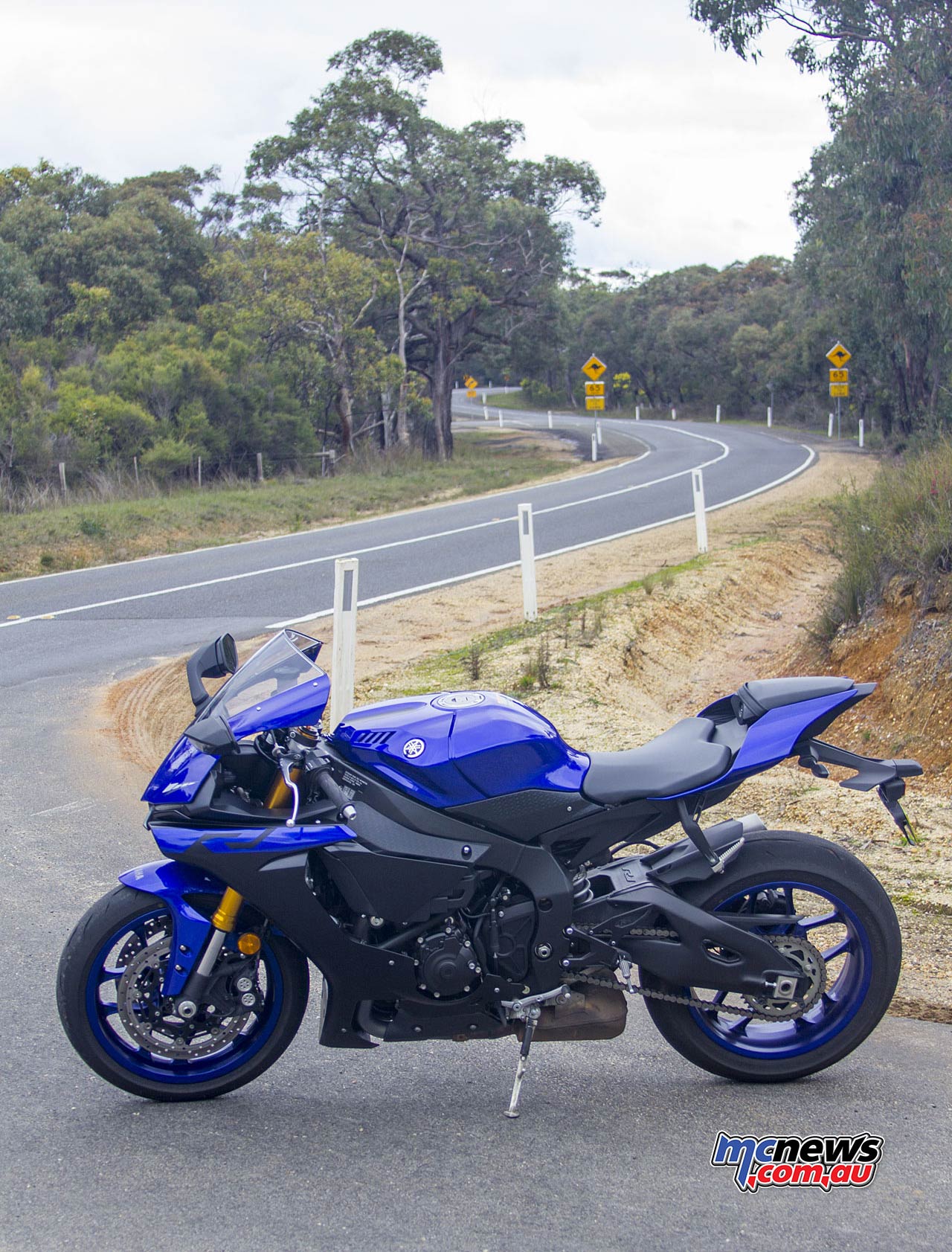
‘That’ engine, combined with a near perfect quick shifting six-speed box completes the driveline, it’s a performance masterpiece. Clutchless upshifts are a doddle, but are slicker from the mid-range up and I still used the clutch on down shifts, as sometimes the lever felt a bit reluctant to drop down a cog. It is worth noting that the bike only had a bit over a thousand kilometres on it when I got it, so I’d imagine it would loosen up a little more with time. Either way it wasn’t an issue.
When on the charge the electronics are flattering (too many acronyms to list but rest assured there’s a shit ton of tech). Even on my first cold, dampish run down to Lorne I was quickly feeling confident and finding a rhythm, such is the seamless nature of the traction and slide control systems. They don’t get in the way at all. You can just roll on the gas confident in the knowledge that you have a safety net smarter than you… And smart they are.
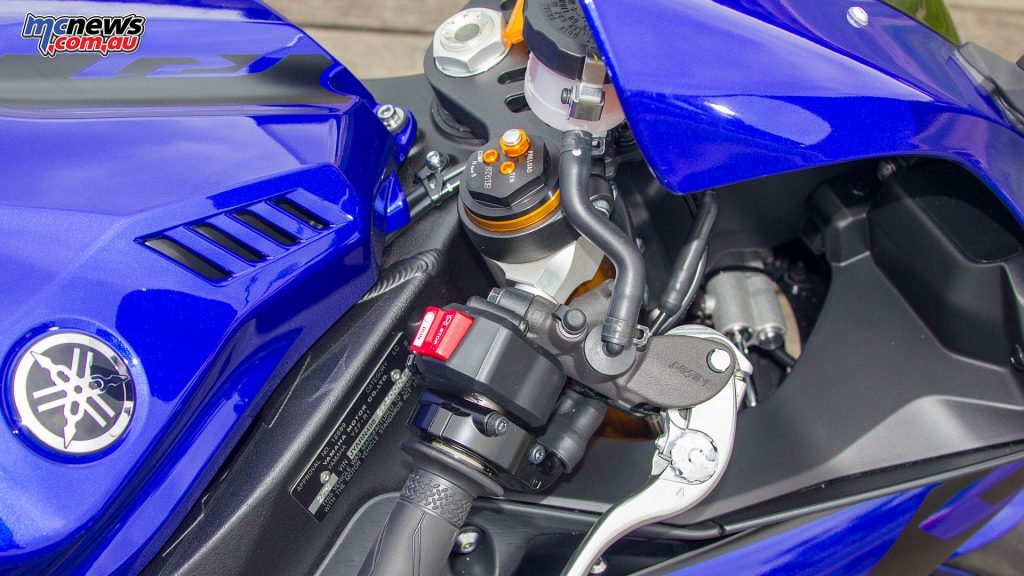
It comes with four engine modes, A-D. ‘A’ being the most powerful, stepping down to ‘D’ being the wet map. There’s little difference between A and B modes on the road until the top end ,where the B map feels a little (but not much) softer. I ended up using the B mode in the wet, it’s a pussy cat down low when you want it to be. Each map adjusts power, traction and slide control settings but unfortunately these aren’t able to be changed on the move, however you can tweak individual settings for power, traction and slide control. Which is a bit odd. Handy though, because the C map doesn’t have the Lift Control System (Yammies anti wheelie tech).. So you could give everything full welly without the fun police stopping the front coming up. Not that I would of course. Just sayin. For research purposes.
When activated, it’s very reluctant to lift the front in the first three cogs. It won’t come up unless seriously provoked, at which time its then gently brought back down to Earth. While it might be a bit of a buzz kill when you want to have a play, it is brutally effective when you’re in the twisties. The front is positively glued to the deck. No doubt helped by the aforementioned weight forward riding position. There is something to be said for having the front hover a few centimetres above the deck under full acceleration, the front dipping to kiss the tarmac as you as you snick through the lower gears. During those moments, and quite a few others to be fair, I felt like a riding god.
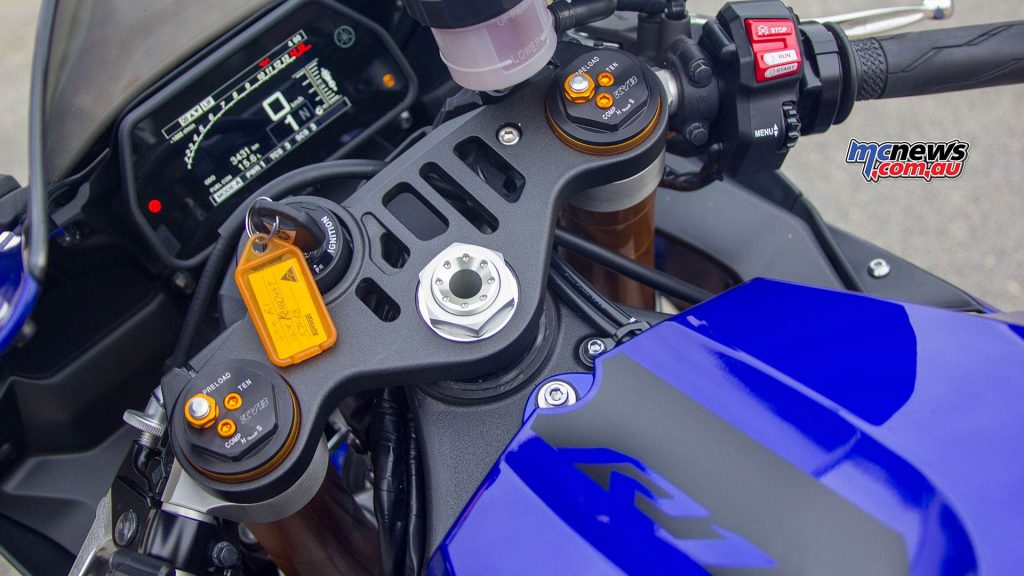
While we’re banging on about electronics – the TFT dash is a bit on the small side for my liking, but it’s nice enough on the main. Couple of minor gripes from me, no distance to empty meter and some fairly pointless info being displayed in spots. I get that Yamaha wanted to show off some tech and added a brake activation force meter, a g force meter as well as an indicator for the quickshifter to tell you if you’re accelerating or braking.. but I’m not convinced that you’d want to be looking at the dash when getting really hard on the gas or the picks. And I definitely don’t need to be shown if I’m accelerating or decelerating.. Seems like some distraction waiting to happen.
Suspension on both ends is of course, firm. Really firm. Race bike firm. As is the seat. Sure the ride is stiff, but surprisingly it’s not actually overly harsh on big impacts as the suspension is well spec’d and damped, and has plenty of adjustment to fine tune things. It’s manageable on everyday roads and doable for a regular commute, but becomes an effort for me with my fairly extreme loop. The straight stretch from Geelong to Melbourne is not fun on something like this. But you endure it for the weekend’s play time.
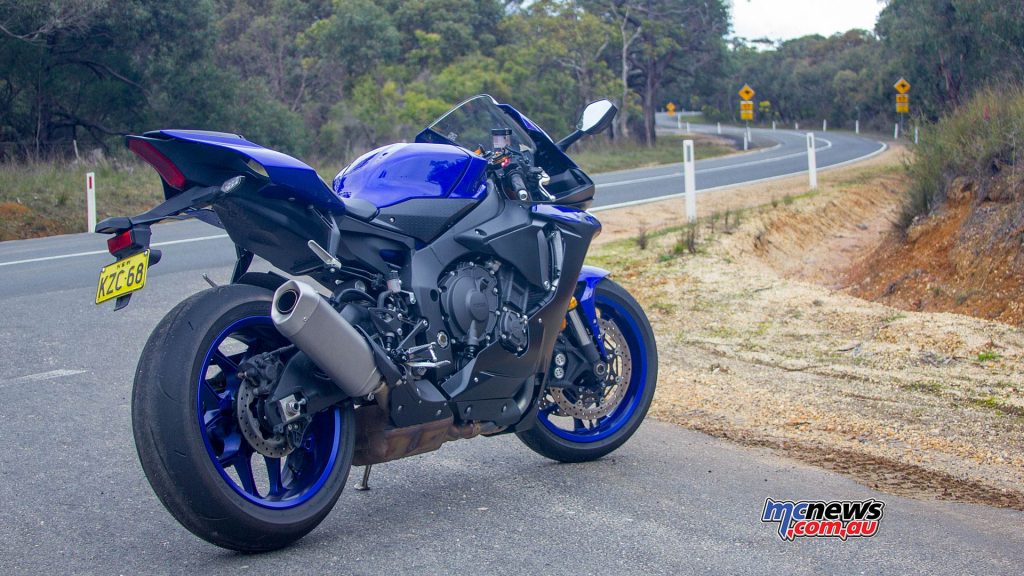
It is a trade off. The aggressive weight forward geometry comes at a price comfort wise at regular speeds and anything below two-thirds attack. It comes into its own and starts making sense as speeds and intent rise. And the faster and harder you go the better it feels. Mid corner it is mega – super planted and giving you the ability to run centimetre perfect, precise lines. And it’s impeccably light and easy to flick left to right and change direction. Phenomenal for a full litre bike.
Brakes are a match for the rest of the bike. Super strong with plenty of bite and feel – they neither feel wanting or overpowered. And you can’t feel the linked system working – it just does its thing. I didn’t even know they were linked until I re-read the specs. Noice.
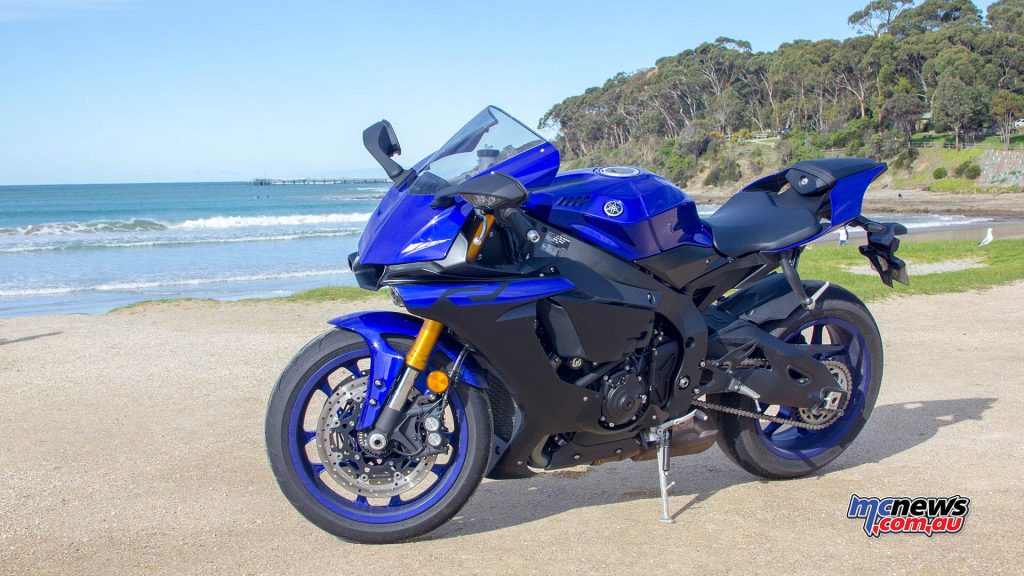
Sports bikes are a pretty extreme thing these days. They’re now at the point where they’re so focussed on outright performance, that they are arguably a little compromised as a road bike. It wasn’t always that way mind you. Up until about 15 years ago, sports bikes were still reasonably adaptable as all-rounders. But they’re getting seriously focussed now. I’d probably put my Osteo’s kids through Uni if I commuted on one full time. But it might nearly be worth it. I did the Deans Marsh – Lorne return run three-times in a row on it and it was Nirvana, I haven’t felt that connected to a sports bike for a while.. even if it was only 10 degrees and I wasn’t even remotely getting near the bikes limits.
Time to wrap it up.
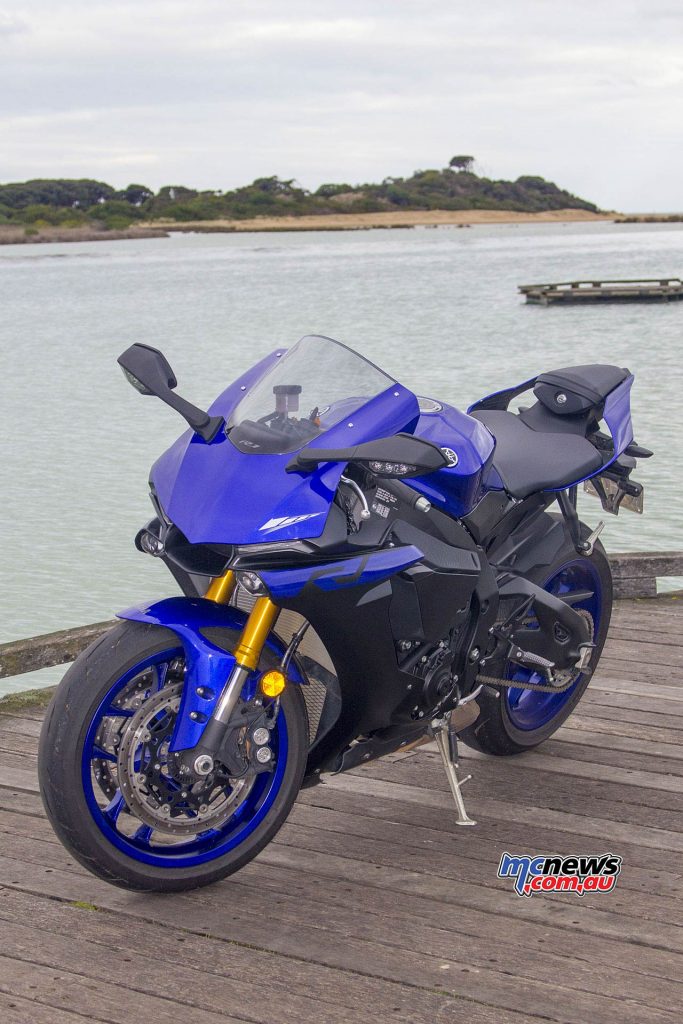
Is it a brilliant sports bike? Unquestionably. Utterly ridiculous levels of performance and a soundtrack to die for – even more so with a pipe. That engine is off the charts good. Suspension, handling and brakes are epic. Feels way more nimble than litre bikes of a generation ago. There’s no weak link really.
Is it a brilliant road bike? Well yes, and no. Like most of the current crop of focussed sports bikes it makes some serious comfort concessions for such high levels of performance. Performance that realistically is now well out of reach of most riders on the road. I’d need and love to have a few days at a dry track to fully appreciate its capabilities. Ultimately the assessment of whether those concessions are acceptable is your call to make, depending on your situation and requirements. If my commute was shorter I reckon I’d be making some phone calls to a Yamaha dealer, as those moments on a bike like this, up your favourite stretch of road, are something to truly behold.
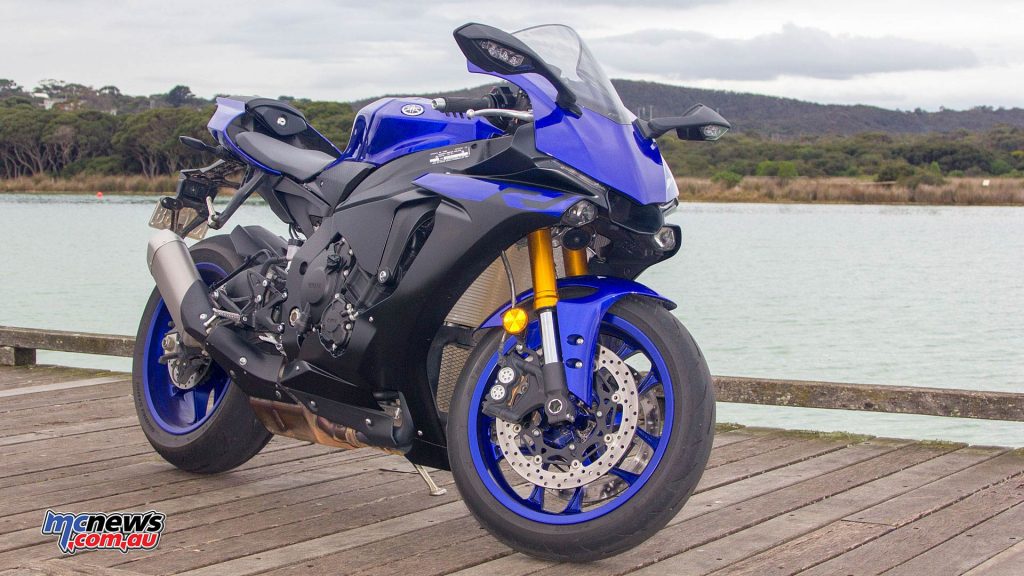
2019 Yamaha YZF-R1 in summary
Why I like it:
- That engine is just astonishing, the sound is ridiculous
- Terrific handling when getting up it. Feels like a lighter bike
- There is no single weak point – it’s an all round package
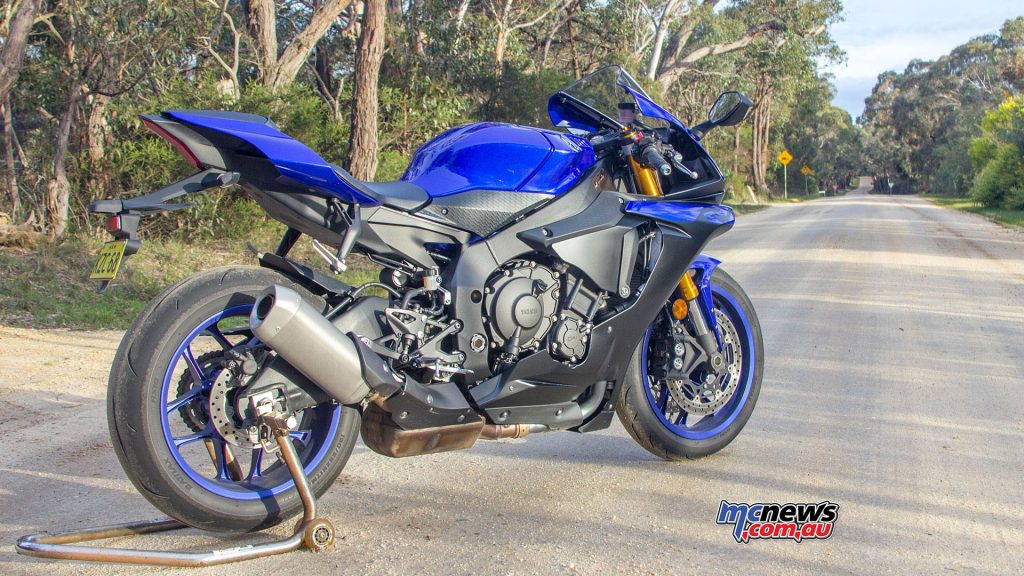
I’d like it more if:
- Ride modes were switchable on the fly
- I’d need a slip on for more sounds of the apocalypse
- Can you make a version that’s a bit less extreme in terms of ride position..? Or build an MT10 Tracer version pls? I need some cross plane crank action in my life!
2019 Yamaha YZF-R1 Specifications
| Specifications | |
| Engine Type | Liquid-cooled, 4-stroke, DOHC, 4-valve, forward-inclined parallel 4-cylinder |
| Displacement | 998 cc |
| Bore x Stroke | 79.0 x 50.9 mm |
| Compression Ratio | 13.0 : 1 |
| Lubrication System | Wet sump |
| Fuel Management | Fuel Injection |
| Engine Management | YCC-T, YCC-I, TCS, SCS, LIF, QSS, UBS, ABS, LCS |
| Ignition | TCI |
| Starter System | Electric |
| Fuel Tank Capacity | 17 L |
| Final Transmission | Chain |
| Transmission | Constant mesh 6-speed |
| Frame Type | Aluminium Deltabox |
| Suspension Front | Telescopic forks, 120 mm travel |
| Suspension Rear | Swingarm (link suspension), 120 mm travel |
| Brakes Front | Hydraulic dual discs, 320 mm – ABS |
| Brakes Rear | Hydraulic single disc, 220 mm – ABS |
| Tyres Front | 120/70 ZR17MC (58W) Tubeless |
| Tyres Rear | 190/55 ZR17M/C (75W) Tubeless |
| Length | 2055 mm |
| Width | 690 mm |
| Height | 1150 mm |
| Seat Height | (mm)855 mm |
| Wheelbase | 1405 mm |
| Ground Clearance | 130 mm |
| Wet Weight | 199 Kg |
| Price | $26,399 Ride Away |
















